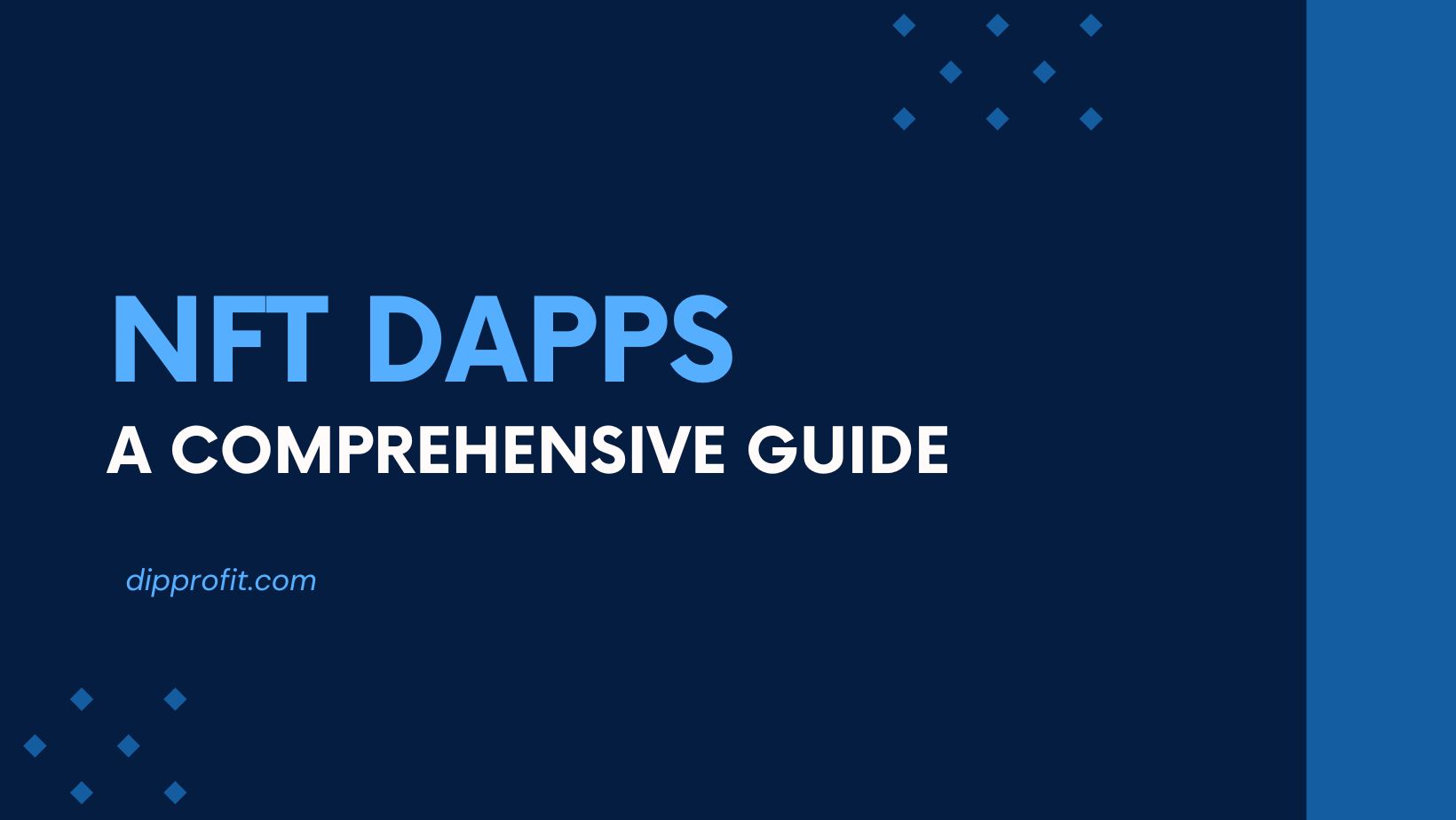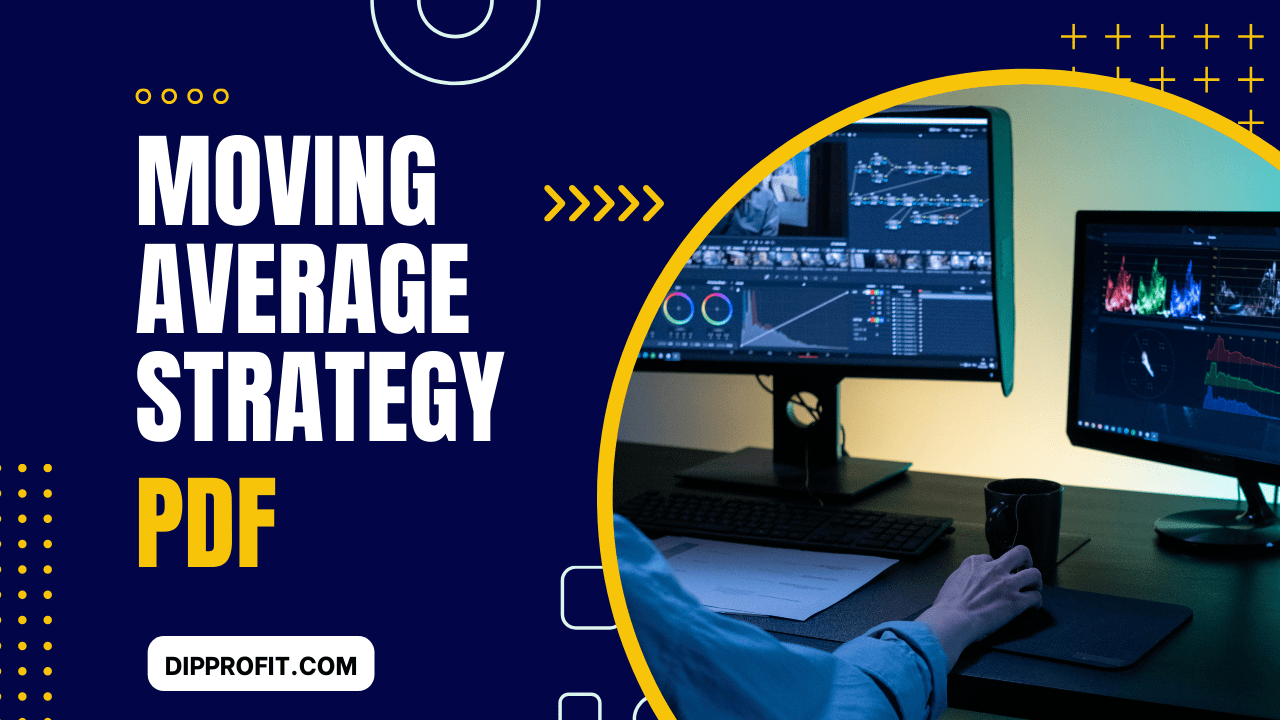What are NFTs?
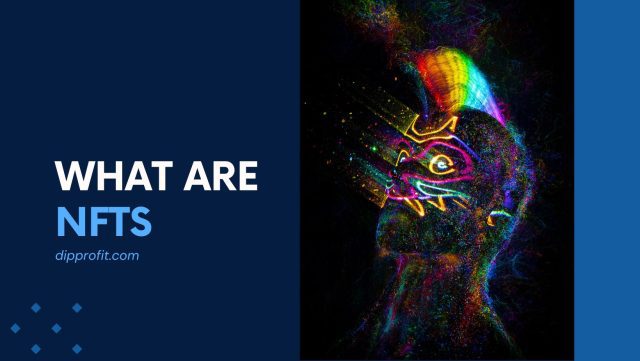
An NFT, which stands for Non-Fungible Token, is a unique digital asset stored on a blockchain. Unlike fungible assets like money or Bitcoin, which are interchangeable, each NFT is one-of-a-kind and cannot be replicated.
This unique identity is verified and secured by the blockchain, which acts as a public ledger recording ownership and transaction history.
What are Dapps?
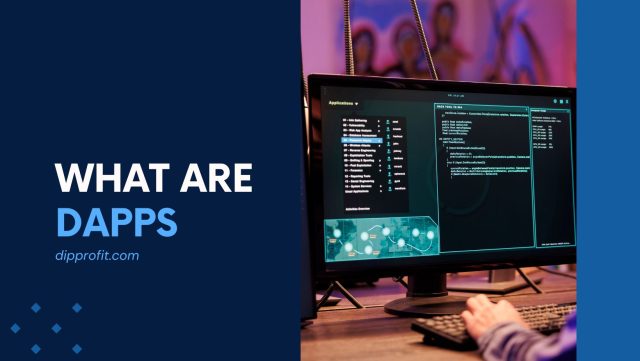
Dapps is a shorter name for decentralized applications that run on a peer-to-peer network, such as a blockchain, instead of a single server or computer.
Dapps are free from the control and interference of any central authority and can offer various benefits, such as transparency, security, and innovation.
Some examples of dapps are DeFi platforms, NFT marketplaces, and gaming worlds.
NFT Dapps
Put simply, NFT Dapps are web3-based applications that integrate and allow the development and usage of NFTs. In the web3 space, users can be able to use these applications to relate with various NFTs on multiple blockchains.
These decentralized apps are important because they give both users and developers more ability to participate in the web3 economy, creating, managing, and taking advantage of the benefits of web3 while pushing the boundaries of what’s possible in the digital world.
To better understand NFT dapps and the meaning behind them, let’s take a better look at their types and categories.
Types of NFT Dapps
There are different types and categories of NFT Dapps, depending on their use cases and features. Here are some of them:
Art and Collectibles Platforms
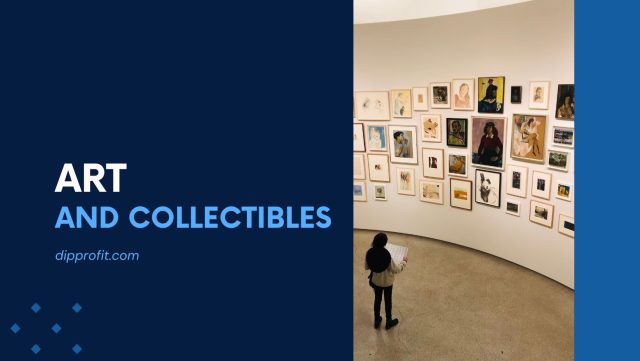
These are the most popular kinds of decentralized applications dealing in the NFT industry as of 2024. These are NFT Dapps that allow artists and creators to tokenize their works as NFTs and sell them to collectors and fans.
They are very popular because they provide a platform for creators and fans to communicate/relate on a closer level by sharing experiences, merch, and collections on a blockchain.
You might be familiar with them as they are also called NFT marketplaces, some of which include platforms like Opensea, Rarible, SuperRare, Nifty Gateway, etc.
These giants are all in the NFT industry to facilitate the buying, selling, and trading of NFTs across various categories like art, collectibles, and music.
Other smaller niche marketplaces such as the Crypto.com NFT marketplace, Binance NFT marketplace, and Dabbay are not left out but are just part of a smaller ecosystem from their parent companies as they cater to specific communities and interests.
Decentralized finance (DeFi) and NFT collateral
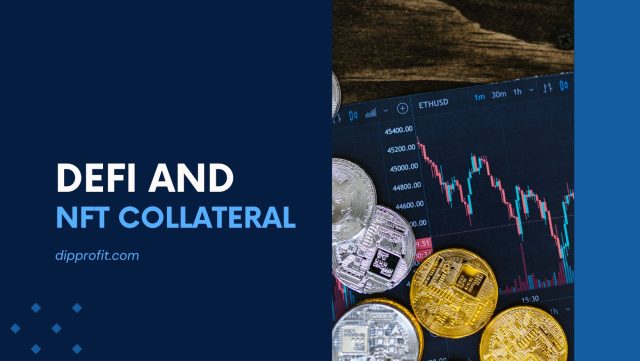
These are NFT Dapps that combine the features of DeFi and NFTs, such as lending, borrowing, and staking. Users can use their NFTs as collateral to access liquidity or earn interest. Examples of these Dapps are Aavegotchi, NFTfi, and NFTX.
NFT dapps such as these, add a layer of simplicity to the whole web3 ecosystem with their applications. For instance, Aavegotchi is a gaming platform that includes other elements of asset staking, land ownership, and blockchain gaming, while NFTfi is another liquidity protocol that uses NFTs to finance transactions on a blockchain.
With Defi tools in the NFT space, collectors can be able to use NFTs as collateral for loans, trade fractionalized NFTs, and even borrow cryptocurrency from lenders by using their NFTs as collateral.
See also: Dapps for Social Media: The Decentralized Future of the Internet
Music NFT Dapps
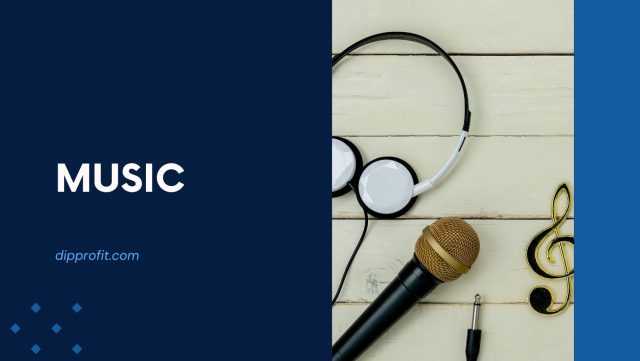
In the NFT space, music dapps refer to those decentralized applications for creators to give them an opportunity and a space to publish their music, catering to their fans and other potential buyers.
Put more simply, they allow creators and musicians to publish their artwork as NFTs on a blockchain.
To do this, they must mint their music onto a blockchain which essentially transforms their songs or albums into unique digital assets, similar to owning a rare trading card or a one-of-a-kind painting.
This opens up a new world of possibilities for musicians, including:
- Direct ownership and control: No longer relying on intermediaries, musicians retain complete ownership of their music and receive royalties directly through smart contracts.
- New revenue streams: Fans can purchase these musical NFTs, giving artists a new income source beyond traditional streaming platforms.
- Enhanced engagement: Musicians can create exclusive content, experiences, or benefits for NFT holders, fostering deeper connections with their fans.
- Fractional ownership: Platforms can allow fans to purchase fractions of an NFT, making high-value music more accessible to a wider audience.
So, think of music dapps as a revolution in music distribution, empowering musicians and offering fans a unique way to own and experience their favorite music.
Audius and OneOf are some of the examples of NFT dapps available on the market today. Other secondary dapps that also allow music to be minted as NFTs include Opensea, Mintable, and Rarible.
See also: Sound NFT Music Platform Secures $20 Million Funding
Utility Dapps
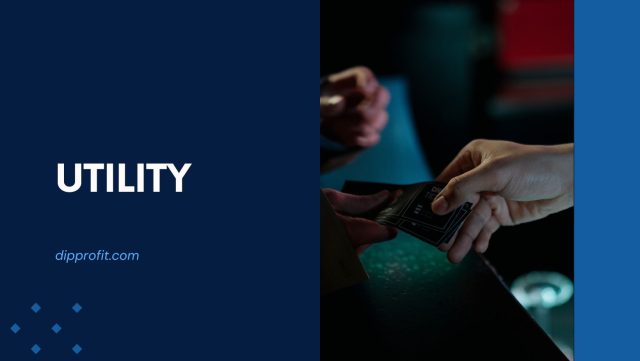
Imagine this… you’re at a sold-out concert, the energy is electric, and you’re holding more than just a ticket. Snuggled in your digital NFT wallet is a unique NFT representing your experience. It doesn’t just grant you entry to the event, it’s a portal to other happenings on the venue.
This NFT proves you were there, forever etched on the blockchain, immune to forgery or loss. Years later, you can relive the memories and share your memories with pride.
Can’t attend the event? No worries because your NFT can also be transformed into a tradable asset. Sell it securely and transparently to another fan, ensuring fair pricing and instant settlement.
Hold onto your NFT, and it becomes a golden ticket. Access VIP events, limited-edition merchandise, or even meet-and-greets with the artist – all thanks to your unique piece of the experience.
This is the power of Utility NFT Dapps like NFTTickets, YellowHeart, and NFTify transforming everyday interactions into valuable digital assets.
Now, imagine a loyalty program that doesn’t rely on plastic cards and expiring points. Imagine one where your engagement is rewarded with exclusive NFTs
Comic book fans collect rare digital covers or character art, unlocking access to early releases or behind-the-scenes content.
Even crypto enthusiasts earn NFTs representing different tiers of membership, each offering unique benefits like reduced fees or early access to new features.
This is the world of Utility NFT Dapps, a benefit of web3 where everyday interactions are fused with value and meaning, thanks to the power of NFTs
Metaverse Dapps
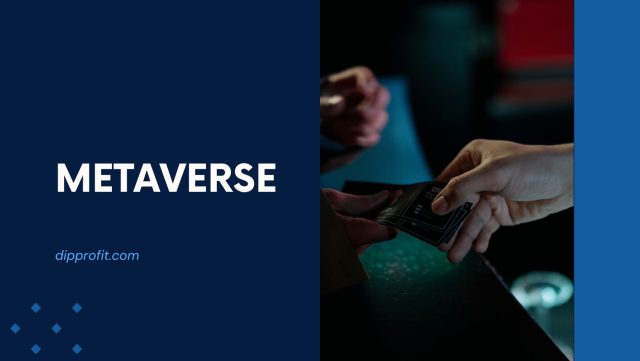
Various metaverses allow for the usage of NFTs in-game as well as a system for trade. Imagine buying a rare virtual building as an NFT and using it across different metaverse platforms as a property you own.
Metaverse NFT Dapps offer much more than just entertainment. They hold the potential to revolutionize various aspects of our lives including Commerce, Education, and Social interactions.
Decentraland, The Sandbox, and CryptoVoxels are some virtual worlds that use NFTs for land ownership, avatars, and items, community building, and social experiences.
Other fashion Dapps like DRESSX and RTFKT give gamers an opportunity to purchase and wear digital fashion items as NFTs in virtual spaces and even on their avatars on social media platforms.
Gaming Dapps
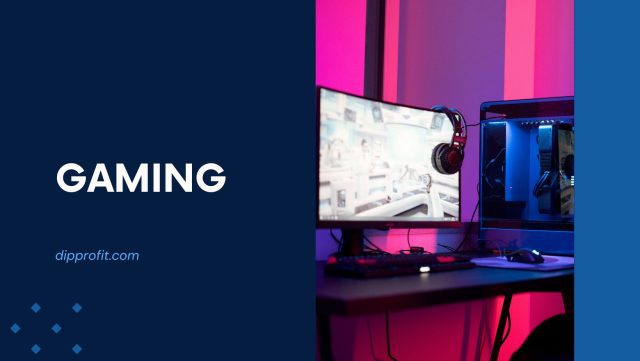
Gaming Dapps are one of the biggest in this sector and are still growing in popularity for a good reason. One of the reasons is that they offer a unique blend of traditional gaming experiences with the power of blockchain technology.
For Play to Earn games, they create decentralized economies where all gamers have true ownership of their assets in the games, for example, Axie Infinity.
Other examples include collectible card games such as Gods Unchained and Sorare where gamers can trade, sell, and even earn new cards through gameplay, competitions, and giveaways.
The world of gaming NFT dapps extends far beyond these specific examples. Genres like MMORPGs, strategy games, and even mobile games are embracing NFTs and blockchain technology.
NFT Dapp Tools
NFT Dapps are transforming industries, and at the heart of this revolution lies a powerful arsenal of tools. These tools empower developers to build innovative applications that leverage the unique properties of NFTs. Here’s a glimpse into the key categories
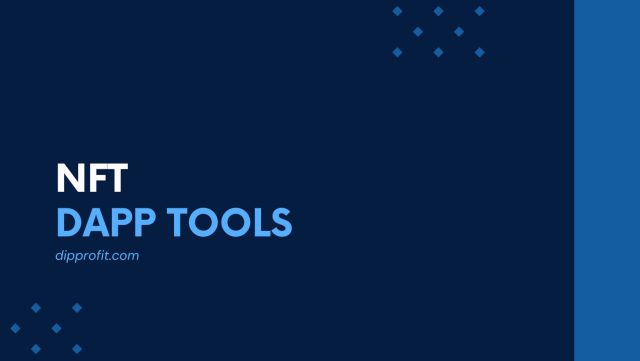
- Smart Contract Frameworks: Platforms like OpenZeppelin and Hardhat provide pre-built contracts and development environments, allowing developers to focus on core functionalities.
- NFT Minting Tools: Services like Pinata and Rarible API enable the creation and issuance of NFTs on various blockchains, streamlining the process for developers.
- Marketplace Integration: Platforms like OpenSea and Rarible offer APIs and SDKs for seamless integration of secondary marketplaces, allowing users to trade and discover NFTs within the Dapp.
- Data Storage Solutions: Decentralized storage options like IPFS and Arweave ensure tamper-proof and censorship-resistant storage for NFT metadata and associated files.
- Analytics and User Management Tools: Platforms like Dune Analytics and Moralis provide valuable insights into user behavior and NFT ownership, enabling developers to optimize their Dapps.
These tools are constantly evolving, and new options emerge regularly. understanding and utilizing these tools, developers can unleash the full potential of NFTs, and propel the growth of the NFT ecosystem.
See also: The Top Web3 Analytics Tools used in 2023 You Didn’t Know About

